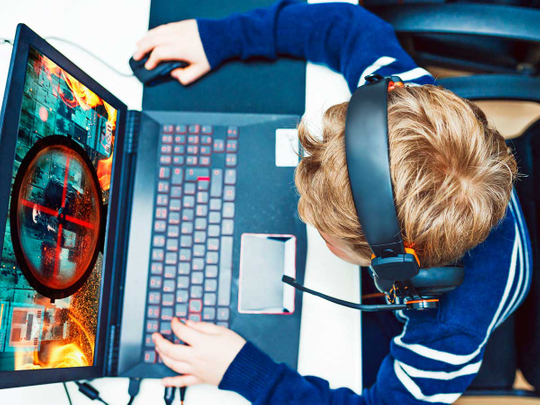
More warnings and more concerns beg the attention of parents and school authorities as the problem of children’s attention being devoured by online games and chats deepens into a crisis in perpetual motion in today’s times. Dubai’s Al Ameen Service’s session for school principals, reiterating to them the dangers of children’s unmonitored engagement with the online world is one of the many continual efforts by the government to combat the problem. And the operative word here is unmonitored. In the wealth of advice and awareness that experts around the world offer to parents and schools on how to help children negotiate the online world, there is a simple and effective common solution: Pay attention to what children are up to.
According to a UAE study, of the 80 per cent of people under 18 using social media in the UAE, especially Facebook, 25 per cent are connected for more than four hours per day.
This is a significant amount of time being spent in a domain which, though it offers immense benefits, also has a vast dark underbelly. Along with information, impetuses for positive imagination and creativity, the online world also leads to exploitation, bullying, suicide, indoctrination, violence and predatory tragedies. What keeps cyber wolves at bay is awareness and restraint and in the context of children, it is the inviolate responsibility of parents to teach, supervise and empower their wards to stay aware of the dangers of unchecked online engagement. Wherever required, they must also be willing to undertake online voyages along with their children. This partnership ensures many pay-offs: Children learn of the risks involved in impulsive solo web explorations, build a bond of trust and understanding with parents, which in turn nurtures in them the restraint to avoid online adventures in a world without borders and no red flags about what lies ahead.
An important point raised by the session was the reluctance of schools to reveal cases of students’ online victimisation, fearing loss of reputation. These apprehensions — that are sometimes also felt by parents — must however be expressly done away with in order to allow affected children to be provided with help at the earliest. In fact, the authorities have been discussing the provision of specialised prosecution and even specialised police for children’s cases and this is commendable thinking. As the most vulnerable segment of society, children deserve targeted attention.
Together, parents and schools must assist the authorities’ efforts in helping children build a constructive, rewarding relationship with the online world while keeping themselves fully aware of its dangers.







